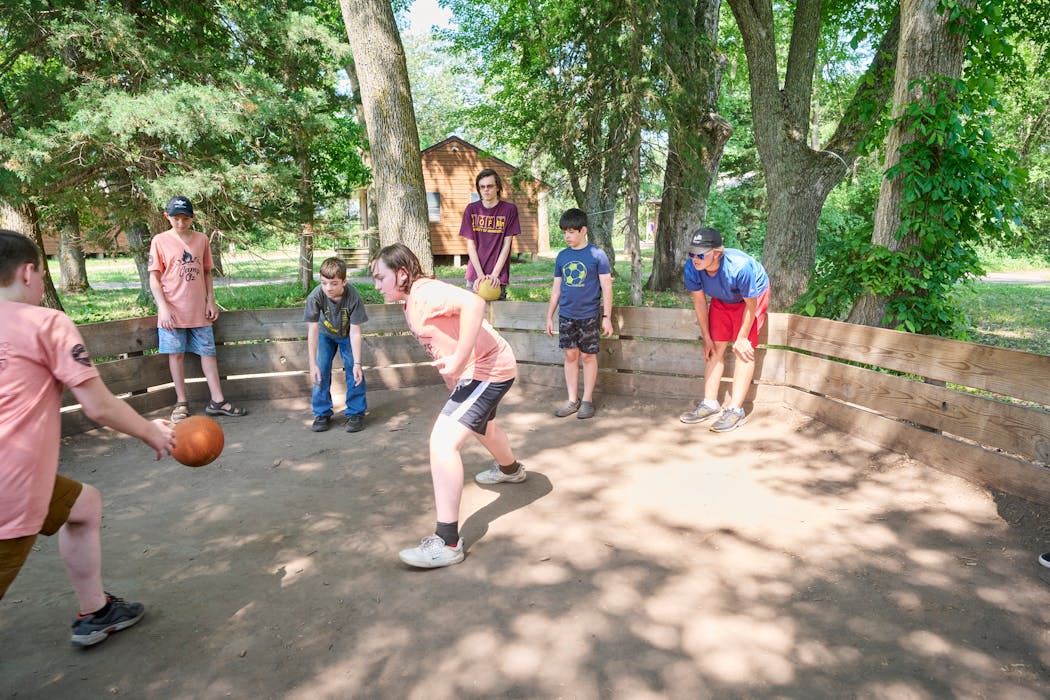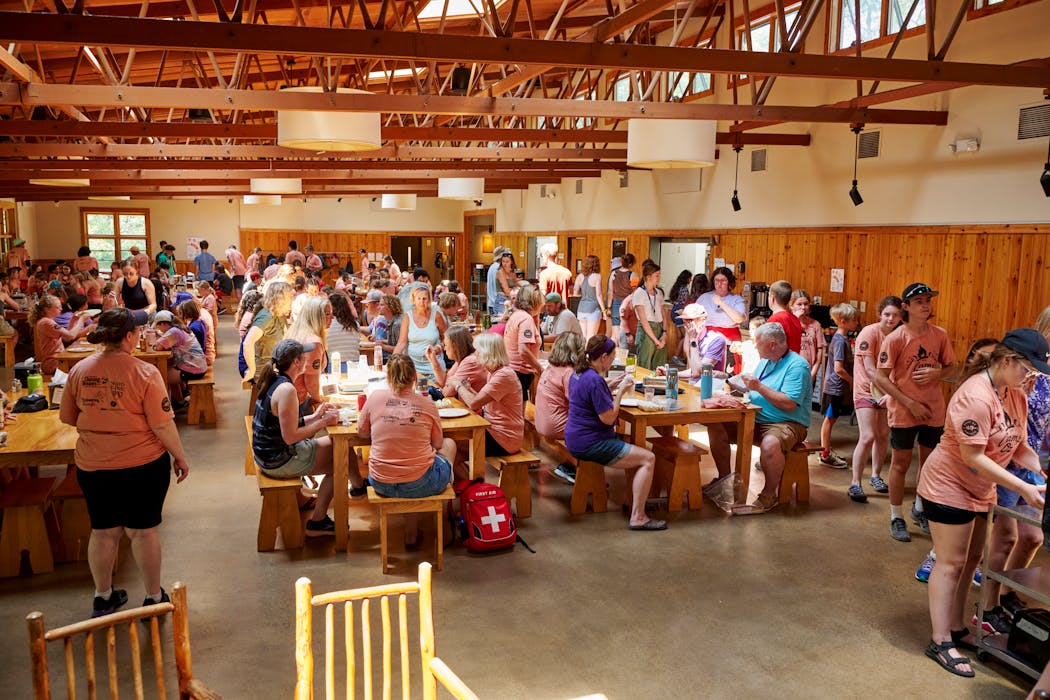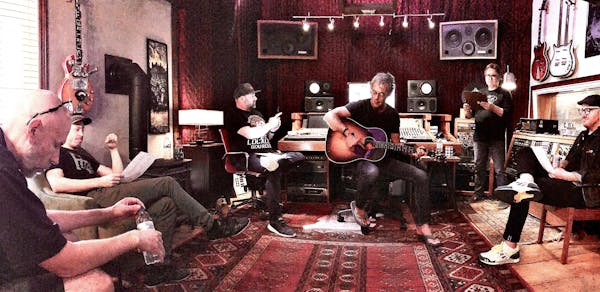Outgoing and expressive, Glen Lloyd normally can summon thoughtful sentences when the occasion calls for it. But in the first moments after learning of a large donation to the Epilepsy Foundation of Minnesota, of which he is executive director, he had no words.
It was a $5 million gift, presented by an anonymous donor.
"I found myself gobsmacked and unable to speak," Lloyd said.
The benefactor, whoever it is — Lloyd is one of just a few people who know the donor's identity — earmarked the money for Camp Oz, the foundation's summer camp for children with epilepsy.
The foundation received the gift last year and announced it shortly before Camp Oz's annual weeklong session in June, which marked its 40th anniversary.
It's not the largest ever anonymous donation in Minnesota; not even the largest last year. In 2022, Saint Mary's University of Minnesota received $25 million, biggest in that university's 111-year history, and Minnesota Public Radio received $56 million, biggest in its 55-year history.
But those undeniably generous gifts went to organizations with overall annual budgets upward of $100 million, whereas the Epilepsy Foundation's budget is just under $3 million. The donation was by far the biggest gift the organization has ever received, its only multimillion-dollar single gift.
The foundation does not collect program fees or receive government grants, but gets almost all of its support from donations, Lloyd said. It also takes in revenue from its used clothing collection and resell program, and the occasional bake sale.
"I get goosebumps thinking about what this means for the campers yet to come," Lloyd said. He has seen some in the organization react with tears of joy and an "overwhelming expression of gratitude."
About 4,000 kids living with epilepsy and seizures, a potentially life-threatening condition, have attended Camp Oz since it opened. (About 470,000 children in the United States, or 0.6% of kids up to 17 years old, have active epilepsy, according to the Centers for Disease Control. The rate is disproportionately high among people of color and those with lower incomes.)
The donation will help support access and programming, a foundation spokesman said.
Held at the YMCA's Camp St. Croix in Hudson, Wis., Camp Oz offers a place for youth ages 9 to 17 to safely do all the activities of traditional summer camps: swimming, wall climbing, horseback riding, a zip line. Campers can play gaga ball, a game sort of like dodgeball but played in a pit, Lloyd said. "We see children with mobility challenges be able to get into the gaga pit and play alongside folks who have no physical limitations."
With all of the camp's counselors and support staff trained in epilepsy response and health care professionals on the premises, families can relax, knowing their children will be safe while they're away and having fun.
Seizure first-aid measures include making sure the person is in a safe location where they won't fall or hit their head, and calling for emergency aid if the seizure lasts longer than five minutes, or if you're not sure whether they've had seizures before. (Don't do what you might have seen people on TV do — stick something in the person's mouth to keep them from swallowing or biting their tongue. That actually could make things worse by blocking their air intake.)
"Camp Oz gives you the feeling of seizure freedom for a week," said Emily Forbes of Wayzata, whose 17-year-old son, Everett, has attended Camp Oz three times.
"I will cry, it means so much," she said. Her voice broke and she paused for a few moments before continuing. "They were able to meet him at every level and support him, to make this one week a great formative part of his life."
New friends, similar challenges
Perhaps best of all, the camp offers a place for young people with epilepsy to hang out with other young people who face similar challenges. Campers bunk together in cabins, eat together in a food hall and enjoy the camp's recreational activities together.
Being differently abled can be isolating for a kid. Even for Prince, who, People Magazine and other outlets reported in 2009, said he was born with epilepsy and dealt with "getting teased a lot in school," he said.
"And early in my career I tried to compensate by being as flashy as I could and as noisy as I could." Prince said. However, spending time by himself as a kid may have given the music superstar an opportunity to master such a wide variety of instruments, Lloyd said.
Everett Forbes knows the feeling of isolation.
"For most of my childhood, I felt like an outcast," he said. He had one close friend in kindergarten but she moved away the following year. "I was heartbroken by that. It took many years for me to make new friends."
Everett's seizures came in clusters, up to five times a day, interfering with his ability to socialize, his mother said.
"When you don't have seizure freedom, your life is very, very different from somebody who does," she said. "So when he was old enough to go to Camp Oz, it was this incredible opportunity to be able to meet other kids who had similar difficulties."
Epilepsy seizures can take many forms, differing from person to person in frequency, duration, which body parts are affected and so on. But although kids attending Camp Oz experience them in different ways, "there's this fundamental understanding of how your life can be turned upside down," Emily said. "And that's just part of your life."
After years of trying multiple medications, special diets and even brain surgery (during which he suffered a stroke that left him with a weakened right side), Everett has been seizure-free since — he can tell you the exact date — Dec. 28, 2017.
He was apprehensive when his mother first suggested Camp Oz, he said. "Me and Mom had a long debate of whether I should go or not. I was the one who wanted not to go but my mother forced me to go. After probably about a day or two [at camp] I would say, I started chatting with other people there and I started to become less shy."
The camp gave Everett an opportunity to try activities he would never have done on his own, his mother said.
"They not only get the kids comfortable being around other kids, but they get them out of their comfort zone, doing things they wouldn't be able to do otherwise," she said.
Camp Oz provided "the self-confidence, the ability to just be a kid, and that safety piece, all wrapped up together."

The 5 best things our food writers ate this week

A Minnesota field guide to snow shovels: Which one's best?

Summer Camp Guide: Find your best ones here

Lowertown St. Paul losing another restaurant as Dark Horse announces closing




